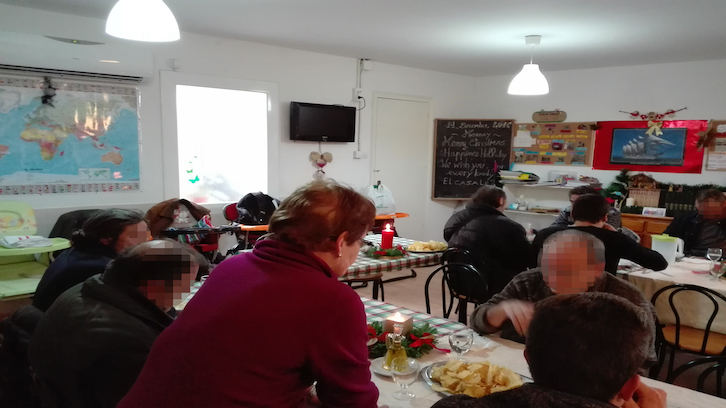The role of charity in times of crisis, an ethnographic approach

In the Mediterranean context, the family is the mainstay on which the members composing it are sustained. However, in situations such as the economic crisis that occurred between 2008-2014, the support capacity can become overwhelmed. In this article, researchers from the Department of Social and Cultural Anthropology evaluate the role of charities in times when the increase in poverty and social exclusion threatens broad layers of society. The study shows the activation of cultural mechanisms that originate ties (or symbolic families) between social workers (or volunteers) and beneficiaries. Connections that possibly disappear when users leave the program.
The social impact of the last global economic crisis led large social sections in Spain to a considerable increase in the exposure to the risk of poverty and social exclusion, both among those traditionally regarded as the most vulnerable population and among people who found themselves for the very first time in a situation of poverty or severe material deprivation.
In this paper, we argue that charity organizations that provide welfare in Spain function as symbolic families and analyze how such a symbolic transfiguration operates. We contend, first, that charities mirror the western concept of family/kinship and, second, that such organizations become an extension or even a substitution of family for their clients. We present evidence from our ethnographic fieldwork, which was performed in the framework of a larger project involving various charity institutions.
The structural reliance on family as a default provider of care in certain, particularly Mediterranean countries, has invigorated its care-based nature, whilst the state has attenuated its supervisory duty by transferring (or externalizing) the ultimate responsibility (but also duties and costs) over care to non-governmental institutions and organizations (e.g. charities). In this substantial shift, families take on the role of security nets in foresight of tough times. Yet, when times become tougher than expected, as was the case during the economic crisis of 2008–2014, families may be eventually overburdened in their support capacities, and charity organizations take over some of these tasks, acting as a family extension.
For our research, we performed ethnographic fieldwork in two sites of a large catholic charity organization in the outskirts of Barcelona. Ethnographic fieldwork included participant observation and informal interviews with individuals located under the official poverty threshold. As a result, it became evident how symbolic family bonds among different individuals were created through the entwining of interconnectedness, obligation and commitment, sense of belonging, interdependence and the projection of symbolic spaces of hearth.
In this light, we argue, first, that the distinction between family and charities is gradually blurred in this context, as these organizations progressively turn into symbolic families. Second, the creation of a fictive family sphere based on a concrete and specific model of kinship contributes to the effectiveness of the organization. And third, the strong reliance on volunteers further affects the model’s particularities. Hence, our ethnographic fieldwork shows how the institutional space created by charitable organizations configures a metaphorical projection of intimacy, a close relational and affective space between members who progressively assume solidarity roles traditionally attributed to genealogical relatives.
However, we have argued that there is no real interdependence between individuals according to the definition of Sahlins (2013) due to the verticality and temporality of ties. The performance of the symbolic family therefore often ends with institutional decoupling. Consequently, we suggested that the groups of ties can be conceptualized as disposable families, borrowing Desmond’s (author of Evicted, 2013) term of disposable ties.
*This article has been selected as an Outstanding Paper in the 2020 Emerald Literati Awards.
Jorge Grau Rebollo, Paula Escribano Castaño, Hugo Valenzuela García and Miranda Jessica Lubbers
Universitat Autònoma de Barcelona.
getp-GRAFO.
Department of Social and Cultural Anthropology.
References
Referencia completa del artículo: Grau Rebollo, J., Escribano Castaño, P., Valenzuela-Garcia, H. and Lubbers, M.J. (2019), Charities as symbolic families: ethnographic evidence from Spain, Journal of Organizational Ethnography, Vol. 8 No. 1, pp. 25-41. https://doi.org/10.1108/JOE-03-2018-0012

